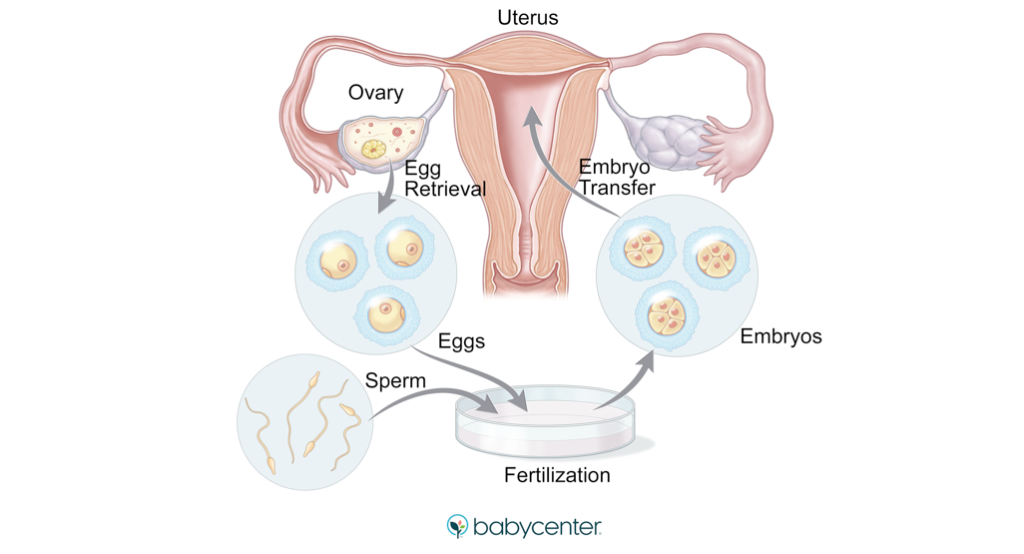In-vitro Fertilization(IVF)
In vitro fertilization (IVF) is a complex series of procedures used to help with fertility or prevent genetic problems and assist with the conception of a child.During IVF, mature eggs are collected (retrieved) from ovaries and fertilized by sperm in a lab. Then the fertilized egg (embryo) or eggs (embryos) are transferred to a uterus.One full cycle of IVF takes about three weeks. Sometimes these steps are split into different parts and the process can take longer.
IVF is the most effective form of assisted reproductive technology. The procedure can be done using a couple’s own eggs and sperm. Or IVF may involve eggs, sperm or embryos from a known or anonymous donor. In some cases, a gestational carrier — someone who has an embryo implanted in the uterus — might be used.

IVF is offered as a primary treatment for infertility in women over age 40. IVF can also be done if you have certain health conditions.IVF may be an option if you or your partner has:
- Fallopian tube damage or blockage
- Ovulation disorders
- Endometriosis
- Uterine fibroids
- Previous tubal sterilization or removal
- Impaired sperm production or function
- Unexplained infertility
- A genetic disorder
- Fertility preservation for cancer or other health conditions
